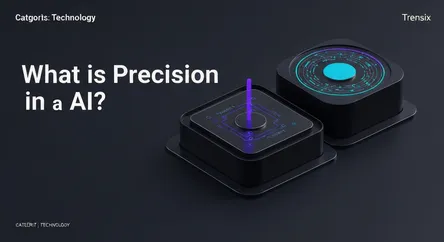Technology
What is Precision in AI?

Discover what precision means in AI. Learn why this key metric is crucial for building trustworthy models and how it impacts our daily lives.
What is it?
Precision is a key performance metric in machine learning that measures a model's accuracy in its positive predictions. Specifically, it calculates the proportion of true positives out of all instances the model predicted as positive. Think of a spam email filter: precision answers the question, "Of all the emails the filter marked as spam, what percentage was actually spam?" A high precision score means that when the model predicts a positive outcome, it is very likely to be correct. It's often evaluated alongside another metric called "recall" to get a complete picture of a model's performance.
Why is it trending?
The focus on precision is growing as AI is deployed in high-stakes fields where the cost of a false positive is significant. In medical diagnostics, incorrectly identifying a healthy patient as having a disease can lead to unnecessary stress and costly procedures. In financial fraud detection, flagging a legitimate transaction causes major inconvenience. As businesses and developers strive to create more reliable and trustworthy AI systems, optimizing for high precision has become a critical goal to minimize negative outcomes and build user confidence in AI-powered tools.
How does it affect people?
AI precision directly impacts daily life by influencing the reliability of services we use. A high-precision medical AI reduces the chance of a false alarm, ensuring patients aren't subjected to needless treatments. In finance, it means your credit card is less likely to be wrongly declined. Conversely, low precision can be disruptive, leading to a critical email being mistakenly sent to your spam folder. Ultimately, the level of precision in AI models determines whether they are helpful assistants or frustrating obstacles, shaping our trust and willingness to adopt new technologies.